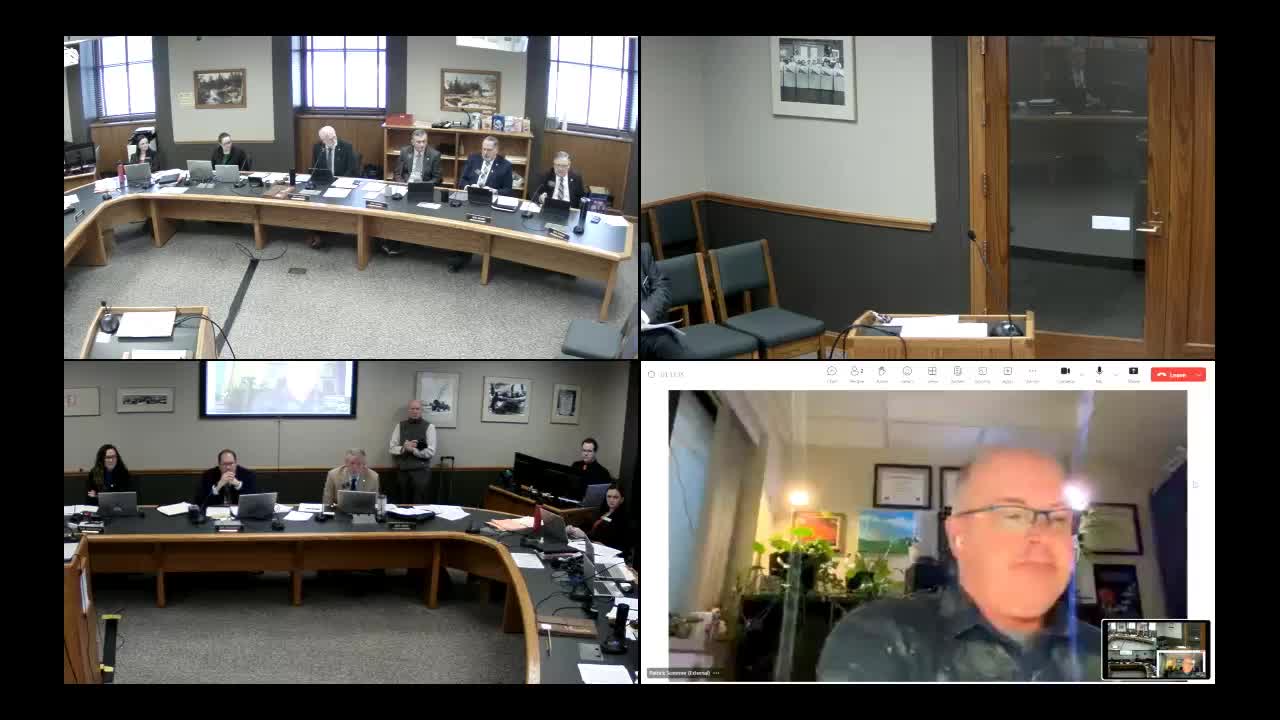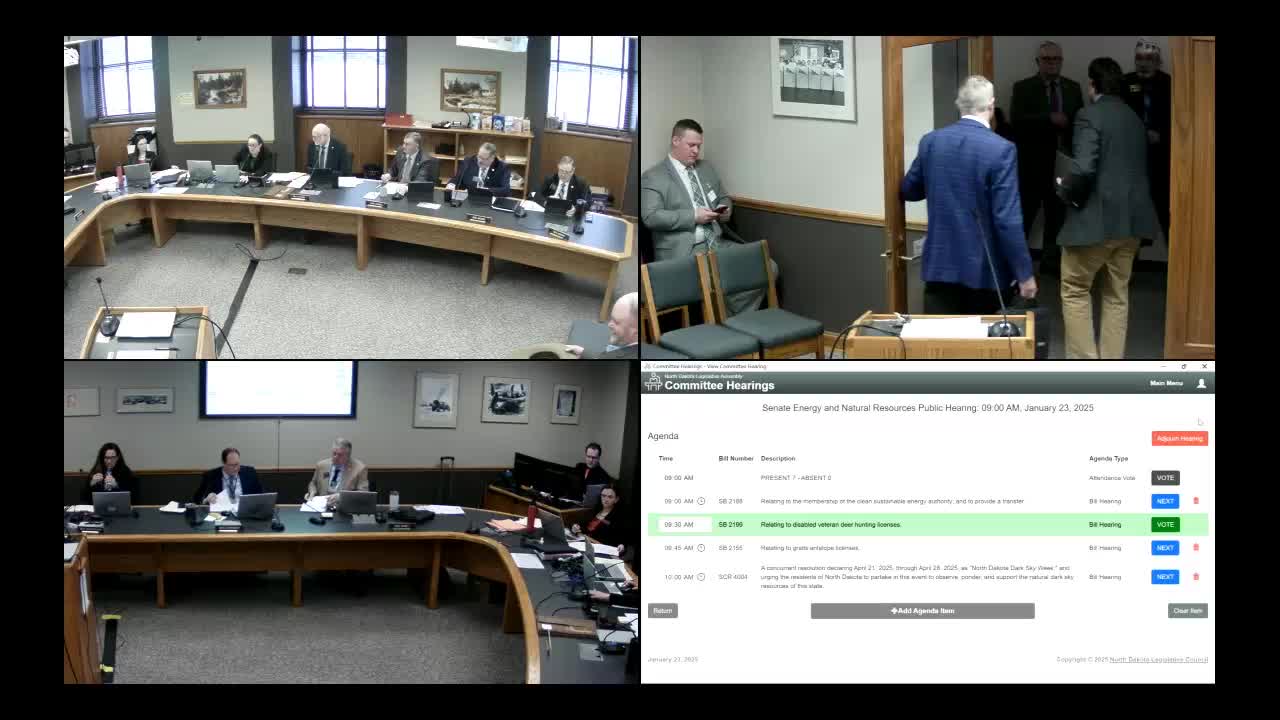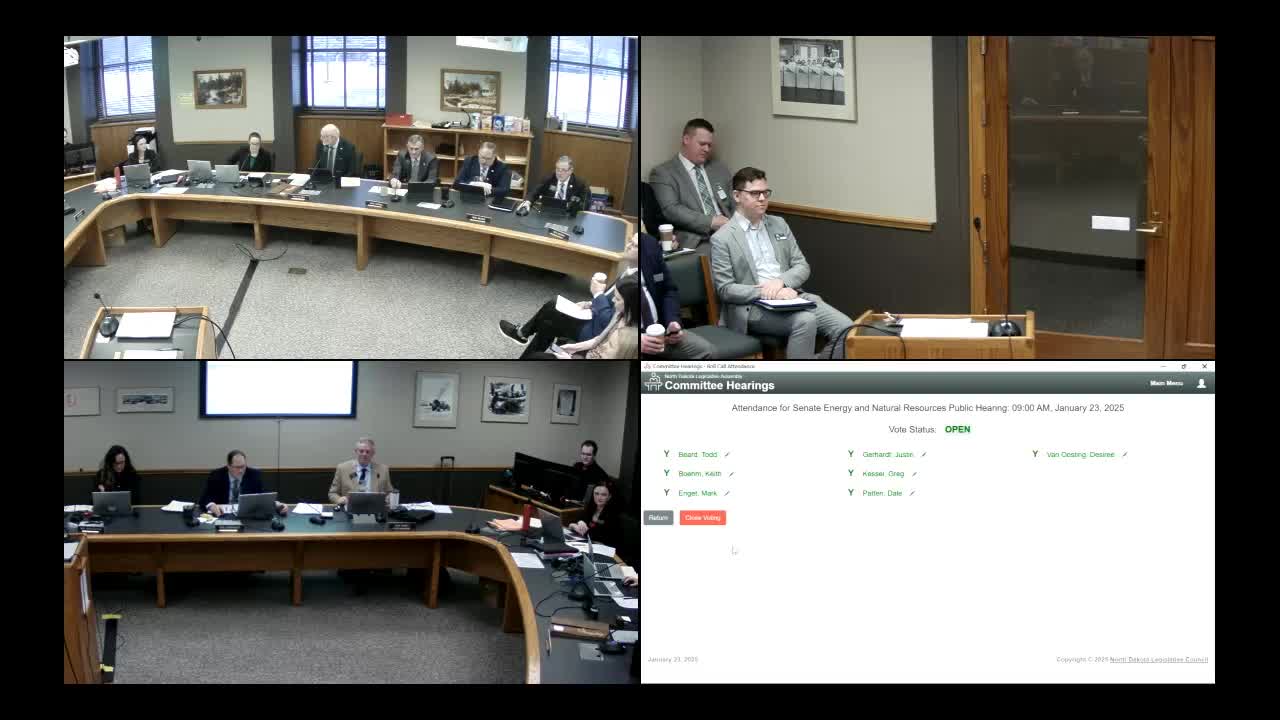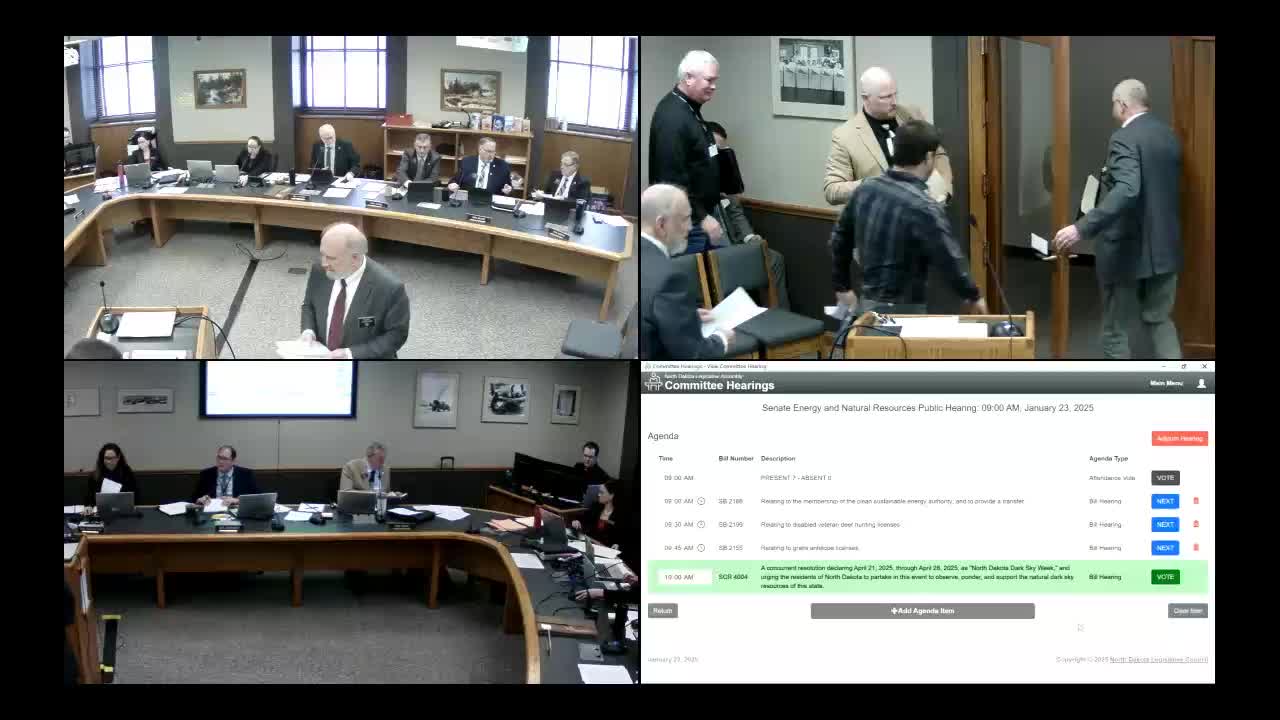Article not found
This article is no longer available. But don't worry—we've gathered other articles that discuss the same topic.

Committee hears bill to split pronghorn tags 50/50 between landowners and non‑landowners; Game and Fish raises allocation tradeoffs

Senate committee hears bill to exempt 100% disabled veterans from deer lottery; agency and wildlife groups urge caution

Committee advances bill to add water director to Clean Sustainable Energy Authority advisory panel, funds loan and grant pools

